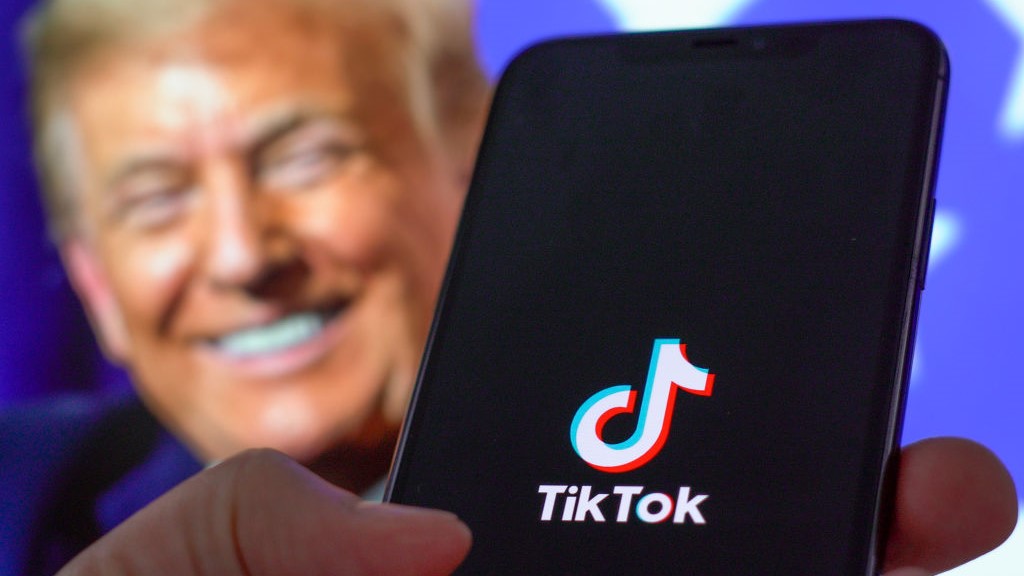Trump 2.0 is a win for Big Tech – but it may not be for encryption
Encrypted communications could remain a target for the new Trump administration

It's just a matter of days before President-elect Donald Trump will return to the White House for a second term in what looks like a win for Big Tech giants.
In his last address to the nation, outgoing President Joe Biden indeed warned against what he described as an "oligarchy” of tech billionaires putting American democracy in danger.
After all, the world's richest person Elon Musk is set to take the leadership of the newly formed Department of Government Efficiency (Doge). According to the Associated Press, also Amazon's founder Jeff Bezos is going to join him in some capacity. Then, how can we forget the video shared by Meta CEO Mark Zuckerberg last week announcing the end of fact-checking policies across his platforms, in line with Trump's beliefs?
While it's difficult to make predictions at this stage of what a new Trump administration could mean for Americans' data privacy, there's also the risk that encryption – the guardian of data security and privacy – might still be a target under Trump 2.0.
Encryption backdoor, a bipartisan matter
During his first mandate, the Trump administration was on the front line in the debate against end-to-end encryption – and this could also be a theme for his next term.
E2E refers to the systems for scrambling data into an unreadable form to prevent third-party access between the sender and receiver – end to end.
On February 2020, at the time US Attorney General William Barr raised concerns about "the deployment of warrant-proof encryption," warning that dangerous criminal can cloak their activities behind an "impenetrable digital shield" as encryption went mainstream.
Nonetheless, according to Jan Jonsson, CEO at Mullvad, one of the best VPN services on the market right now, the push for encryption backdoors is anyway more of a bipartisan matter.
It was, in fact, the current Biden administration that proposed the controversial Kids Online Safety Act (KOSA), requiring encrypted messaging app providers to create a backdoor in their protection on the lookout for potentially harmful content.

Pushing for tech companies to provide encryption backdoors would nonetheless be in conflict with national security concerns.
The recent Salt Typhoon hack – the China-linked unprecedented cyberattack against US telecom companies – has indeed sparked the warning for all citizens to switch to encryption.
Nonetheless, Jonsson explained, US authorities still talked after the scandal about "responsibly managed encryption," meaning a system that allows law enforcement to access communication.
He told TechRadar: "It becomes clear that they don't understand that backdoors to encrypted communication will eventually result in the data falling into unintended hands. This kind of mass surveillance should not happen at all."
Musk's feud with Signal, and Trump?
Among the many provocations launched by his social platform X, Musk was also the protagonist of a smear campaign against what most experts believe to be one of the most secure encrypted messaging apps – Signal.
In a series of tweets (see one below), the billionaire especially questioned the security of the platform. For reference, Signal is open-source software, meaning that anyone with enough technical knowledge can inspect its code on the lookout for any vulnerabilities.
There are known vulnerabilities with Signal that are not being addressed. Seems odd …May 6, 2024
What's important here, though, is the level of influence that Musk has on Trump's decisions regarding the platform.
Commenting on this, Mallory Knodel, cryptography and digital rights expert, wrote on Tech Policy Press: "Given Musk's substantial influence over Trump and key conservative figures in Congress, his criticisms may sway the administration to adopt less stringent encryption standards."
Bottom line
The push to weaken encryption is not only a Trump prerogative – nor it's a battle limited to the US alone.
EU lawmakers are also currently pushing for a law that could undermine encryption over children's online safety. Deemed Chat Control by its critics, it would require encrypted email and messaging app providers to indiscriminately scan everyone's messages in an attempt to halt the spread of child sexual abuse material (CSAM).
Tech experts, however, have long argued that there's no way to break encryption safely, warning against the creation of vulnerable backdoors that malicious actors could exploit. Strong encryption is also ever more needed now that Salt Typhoon-like cyberattacks are on the rise.
All in all, Jonsson from Mullvad said: "Both sides, the Democrats as well as the Republicans, have violated their citizens' right to privacy and allowed mass surveillance of people around the world. We hope it won't get worse, hopefully, things will change in the right direction instead."

Chiara is a multimedia journalist committed to covering stories to help promote the rights and denounce the abuses of the digital side of life – wherever cybersecurity, markets, and politics tangle up. She believes an open, uncensored, and private internet is a basic human need and wants to use her knowledge of VPNs to help readers take back control. She writes news, interviews, and analysis on data privacy, online censorship, digital rights, tech policies, and security software, with a special focus on VPNs, for TechRadar and TechRadar Pro. Got a story, tip-off, or something tech-interesting to say? Reach out to chiara.castro@futurenet.com
You must confirm your public display name before commenting
Please logout and then login again, you will then be prompted to enter your display name.